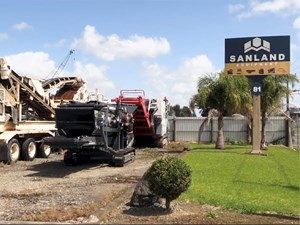Comment: Managing stress and preventing burnout
The impact of the global pandemic has forced many of us to adjust to new working environments. Here are a few good practices for managing stress and preventing burnout.
 |
|
Exercise is also a great stressbuster
|
We live in unprecedented times. The impact of the global pandemic has forced many of us to adjust to new working environments and conditions. Additional PPE, new procedures, reduced social opportunities with co-workers and remote work settings are creating new stressors that are affecting mental health and personal wellness for many workers across the province.
Added layers of upsetting news about recent wildfires, climate change, workforce pressures and industry instability are also major contributors to rising stress and anxiety levels and can make it more difficult for us to prevent overwhelming surges of negative emotions.
This Safety Alert will review stress information and suggest good practices for managing stress, preventing burnout, avoiding a steady stream of distractions to keep you on track and help foster healthier habits to maintain mental and physical wellbeing.
About stress
Stress is our body’s mental and physical reaction to changing or challenging external pressures. While stress can be helpful, if it becomes prolonged or excessive it can lead to mental and physical health issues.
Excessive stress can cause physical symptoms such as headaches, an upset stomach, elevated blood pressure, chest pain and problems sleeping. Stress also affects our mental health and excessive stress can result in depression, panic attacks or other forms of anxiety.
Stress and safety concerns
When dealing with stress, there is a greater chance of losing focus on work tasks and a greater potential for incidents to occur. Stress can also cause harm when people use substances or other negative behaviours to try to relieve their stress.
Managing stress effectively can help reduce negative effects and give us more clarity to allow us to pay attention to the critical safety aspects of our jobs.
Stress relief
- Build good relationships with co-workers. Talk about stress and how it can be harmful. Watch out for each other and offer to help if someone is having problems with stress.
- Encourage co-workers to ask for help if they need it and provide them with positive support resources like counselling or Employee Assistance Programs (EAP).
- Exercise is also a great stressbuster. Something as simple as going for a walk can help to reduce stress.
- Try to surround yourself with people who support you and support them back.
- Be sure to make time for self-care. Set aside time for the things that bring you happiness such as spending time with family and friends and participating in activities that you love to do outside work.
- Getting enough good-quality sleep is also important for effective stress management. You can build healthy sleep habits by limiting your caffeine intake late in the day and minimising stimulating activities at night, such as computer, cellphone and television use.
- Manage expectations: Build in sufficient time for work tasks and communicate these timelines to co-workers and loved ones.
- Be sure to take sufficient breaks when using a computer for a significant length of time. By taking a break from the screen and moving your body (stretch, go for a walk, step outside, etc.) you not only reduce your mental and physical strain, but it also has been shown to improve your productivity and creativity.
Thanks to: BC Forest Safety Council Monthly Safety Alert
Find new and used trucks for sale in NZ
Keep up to date in the industry by signing up to Deals on Wheels' free newsletter or liking us on Facebook.




.jpg)


.jpg)



-(1).jpg)
-(1).jpg)
-(1).jpg)
.gif)
.gif)

